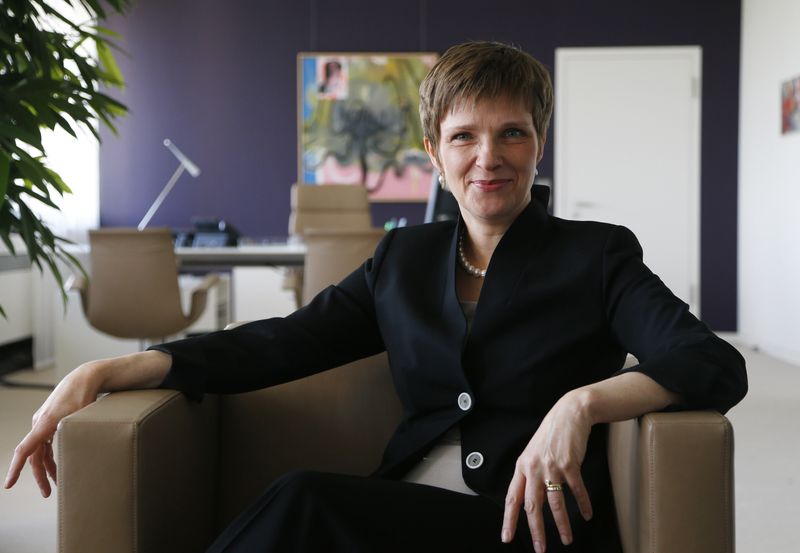Germany’s Buch picked for top ECB supervision role
2023.09.13 10:25

© Reuters. The new German central bank (Bundesbank) vice-president Claudia Buch poses during a photocall at the Bundesbank headquarters in Frankfurt, May 20, 2014. REUTERS/Ralph Orlowski/File photo
FRANKFURT (Reuters) -Germany’s Claudia Buch was picked on Wednesday to head the European Central Bank’s supervisory arm, overseeing a 26 trillion euro banking sector that must now adjust to a new era of high inflation and rising interest rates.
Beating Spain’s Margarita Delgado in what was seen as a close contest, Buch will head the Single Supervisory Mechanism, covering more than a hundred of the euro zone’s biggest lenders.
A doctor of economics and the Bundesbank’s vice president since 2014, Buch is a relative newcomer to banking supervision, having been picked to represent Germany on the ECB’s Supervisory Board only in March.
This relative inexperience is why some members of the European Parliament argued after a closed-door hearing that Delgado was a more appropriate candidate.
Others maintained that Buch’s experience in academia, central banking, financial stability and management gave her a solid claim to the job.
“There is little doubt that Claudia Buch is a highly qualified candidate with the right skillset to lead the Single Supervisory Mechanism,” German Conservative lawmaker Markus Ferber said.
“Given that the European Parliament has to confirm this choice, it is somewhat surprising that the ECB opted not to follow the ECON Committee’s recommendation. This makes the process more complicated than it needs to be.”
Buch must now head back to the same committee for a public hearing and still needs the approval of the European Parliament.
Buch’s main task in her new role will be to refine rather than revolutionise banking supervision, with greater focus on the individual characteristics of banks, rather than blanket rules, experts say.
Profitability is now at respectable levels after more than a decade of weak earnings, and the $1 trillion pile of soured debt that sat on lenders’ books after the euro zone debt crisis is mostly gone.
The sector was largely unaffected by a bout of banking turbulence earlier this year that brought down Credit Suisse and a host of mid-sized U.S. lenders.
The problem now is that Europe is facing the spectre of stagflation – a period of little to no growth, accompanied by high inflation, a combination that will again challenge profitability.
Banks also complain that supervision has become expensive and cumbersome, so Buch’s job will be to simplify the process while raising the focus on climate change.
Buch will take over for a five-year non-renewable term from Italy’s Andrea Enria on Jan 1.








